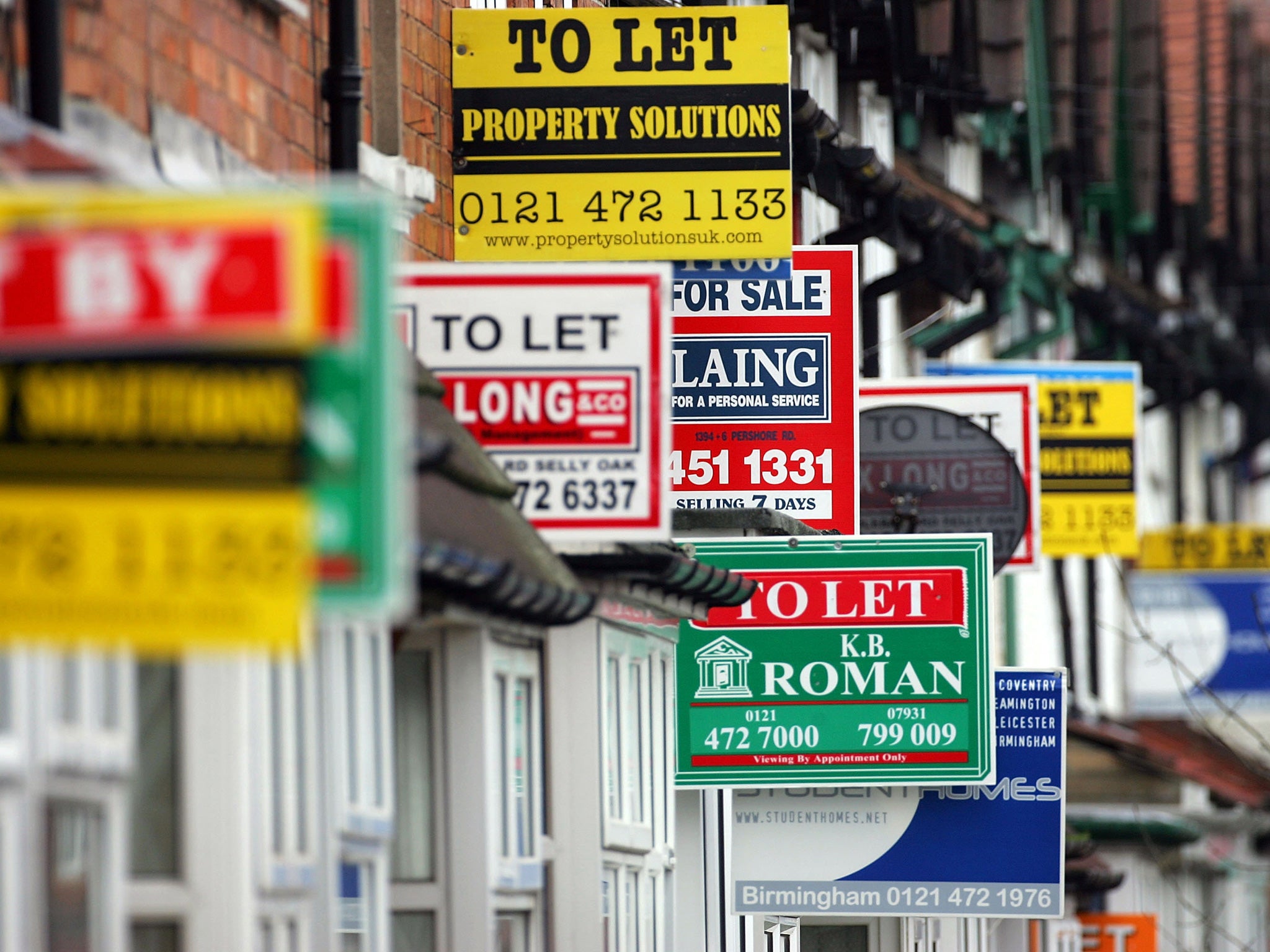Number of people evicted from rented homes has soared since housing benefit cuts began
Figures described as a 'stark warning' over rent rises and welfare cuts

Your support helps us to tell the story
From reproductive rights to climate change to Big Tech, The Independent is on the ground when the story is developing. Whether it's investigating the financials of Elon Musk's pro-Trump PAC or producing our latest documentary, 'The A Word', which shines a light on the American women fighting for reproductive rights, we know how important it is to parse out the facts from the messaging.
At such a critical moment in US history, we need reporters on the ground. Your donation allows us to keep sending journalists to speak to both sides of the story.
The Independent is trusted by Americans across the entire political spectrum. And unlike many other quality news outlets, we choose not to lock Americans out of our reporting and analysis with paywalls. We believe quality journalism should be available to everyone, paid for by those who can afford it.
Your support makes all the difference.The number of people being evicted from their rented homes has increased by almost 50 per cent since housing benefit cuts were introduced four years ago, it has been revealed.
Figures from the Ministry of Justice show that 10,361 households in England and Wales were repossessed by county court bailiffs between April and June this year – equivalent to more than 23,000 people. During the same period in 2011 there were 7,072 repossessions.
The MoJ report said the trend in repossessions by county court bailiffs appeared to be in contradiction to that seen in claims, orders and warrants – a situation it attributed to the time it takes for claims to be processed through to the repossession stage.
“The number of landlord possession claims peaked in January to March 2014 – as a result, the continuing increasing trend in repossessions is most likely due to those claims working their way through the system,” the report said.
The London borough of Newham had the highest number of evictions at 274 per 100,000 households in the area and London local authorities account for all but three of the 20 boroughs with the highest proportion of landlord repossessions. Thanet, Slough and Luton are the only exceptions.
There were no social, private or accelerated landlord repossessions by county court bailiffs in Ryedale, Hart, City of London and Purbeck local authorities.
Campbell Robb, Chief Executive of Shelter, said: “These figures are a stark warning that relentless rent rises and welfare cuts have contributed to thousands of hard-pressed families losing their home.
“Every day at Shelter we see the human cost of the country’s unfolding affordability crisis with growing numbers of families finding themselves on the verge of homelessness, and petrified that any small drop in income could leave them with the bailiffs knocking at the door.
“If the government really wants to fix the housing crisis and bring down rents so people can afford them without needing support, the only answer is to invest in building genuinely affordable homes.”
A spokesman for the Department for Communities and Local Government said: “Overall repossessions continue to fall being 17 per cent lower than this time last year and the numbers of landlord possession claims are down 14 per cent on the previous quarter at their lowest point since 2012.
“This Government has kept strong protections to guard families against the threat of homelessness. We’ve increased spending to prevent homelessness with over £500 million made available to help the most vulnerable in society and ensure we don’t return to the bad old days when homelessness in England was nearly double what it is today.”
Join our commenting forum
Join thought-provoking conversations, follow other Independent readers and see their replies
Comments